This summer festival is a liberating space for women of all shapes and sizes
“Oh, she’s scandalous,” a friend said aloud, referring to me, after one would-be carnivalista asked me what to expect on our trip to Barbados Crop Over Festival — the Caribbean island’s annual six-week festival, which consists of parties booming with calypso and soca music and street fairs flowing with flavorful food and arts to celebrate a 200-year tradition honoring the end of the sugar cane season.
“It’s … fun.” The words gradually rolled off my tongue as I stood there baffled about why she would say such a thing. Was it the costume she’d seen me don in the past? Was it the way my wined [danced] like a snake in Instagram Story videos filmed during carnival in Jamaica months ago? Was it the dancing with both women and men?? Was it because a lot of skin was openly shown in public? Or was it the mere fact that she just didn’t understand Caribbean culture?
It was hard to believe she didn’t get it. It was even tougher to accept her comments as humorous rather than backhanded. I felt as if she had put me in the “scandalous” box, where one is also labeled as shameful, dishonorable, and sinful. But Caribbean women — and people from all backgrounds who participate in carnival festivals — are often subjected to this cruel judgment.
“The perception the U.S. has of Caribbean carnivals shows their ignorance and disdain of African-derived culture and festivals,” says Kai Barratt, a lecturer and carnival scholar at the University of Technology, Jamaica. “The media coverage of Rihanna at Crop Over is a testament to this. It also highlights their imperialistic and colonial position, as they view Caribbean society and its inhabitants as backward and hypersexualized.”
“I would say ‘hypersexualized’ as opposed to ‘over’ simply because the latter suggests a consistent degradation of the carnival-costumed woman to her powerless demise, when in some instances (well, often in the contemporary context), the carnival woman celebrates this period of hypersexuality,” explains Jo-anne Tull, an academic coordinator and carnival studies lecturer, who has been participating in Trinidad Carnival and Crop Over in Barbados for over 20 years. “Many of us bask in this time, particularly with the rise and the importance of [social media like] Instagram in showing off this. We, the women, sometimes are the media creators of this hypersexualized time.”
However, it’s important to highlight how a carnival festival encourages women to own their sexuality in a culture where dance has always been sensual and party outfits have always been revealing, rather than framing the festival attire as an example of sexual invitation and objectification of women and their bodies.
Recall the tragic event that took place at Trinidad Carnival in 2016 when 30-year-old professional steel-pan player Asami Nagakiya was murdered. Port-of-Spain mayor Raymond Tim Kee made comments that suggested the young woman’s carnival costume was to blame for her death. “Women have a responsibility to ensure they are not abused during the carnival season. It’s a matter of, if she was still in her costume — I think that’s what I heard — let your imagination roll,” he told reporters.
Kee apologized for his remarks and eventually resigned after bikini-clad women took to the streets to protest the victim-blaming that stemmed from a carnival festival where the costume is key.
Carnival is not a time to be sexually harassed or slut-shamed. It’s actually one of the most powerful times of year for women to be free from male domination or societal rules, according to Tull. “Carnival day, and the days leading up to it, she is boss.”
Carnival is a liberating time for women (and men) of all shapes and sizes to challenge and contest patriarchal ideas of femininity. It is without a doubt a release from everyday restrictions and a way for women to proudly celebrate and showcase their feather-adorned and bedazzled bodies.
Scroll through to find out what women at the Barbados Crop Over Festival 2018 have to say about overcoming body-image issues and loving themselves just the way they are.
Read more from Yahoo Lifestyle:
• These Carnival Costumes Have the Best Message: ‘You Are Beautiful, You Are Sexy, You Are Gorgeous’
• Rihanna smolders in sexy, beaded bikini and feathers at Crop Over Festival in Barbados
• Street Style at Barbados Crop Over Festival
Follow us on Instagram, Facebook, and Twitter for nonstop inspiration delivered fresh to your feed, every day.


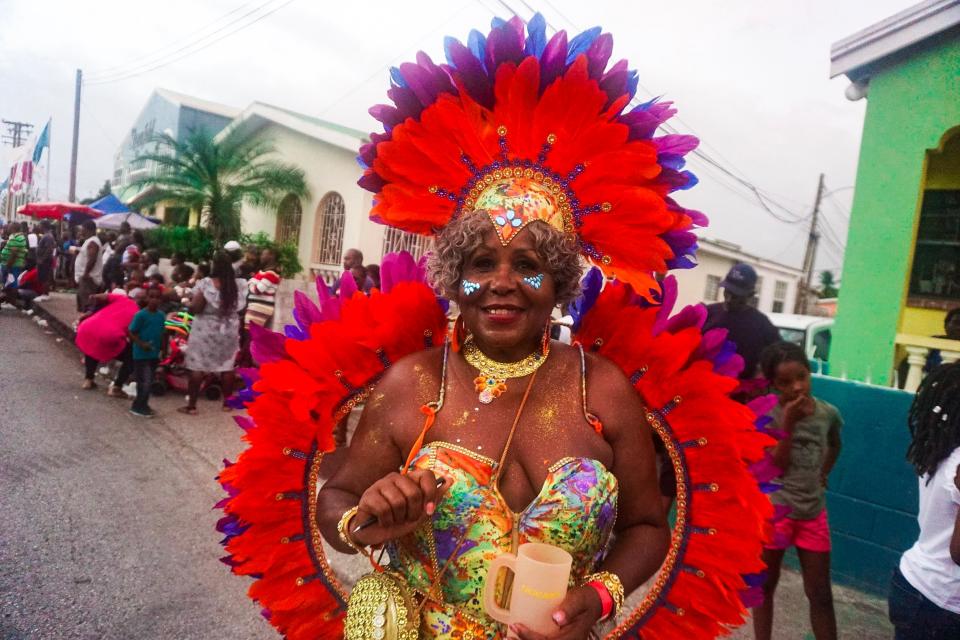


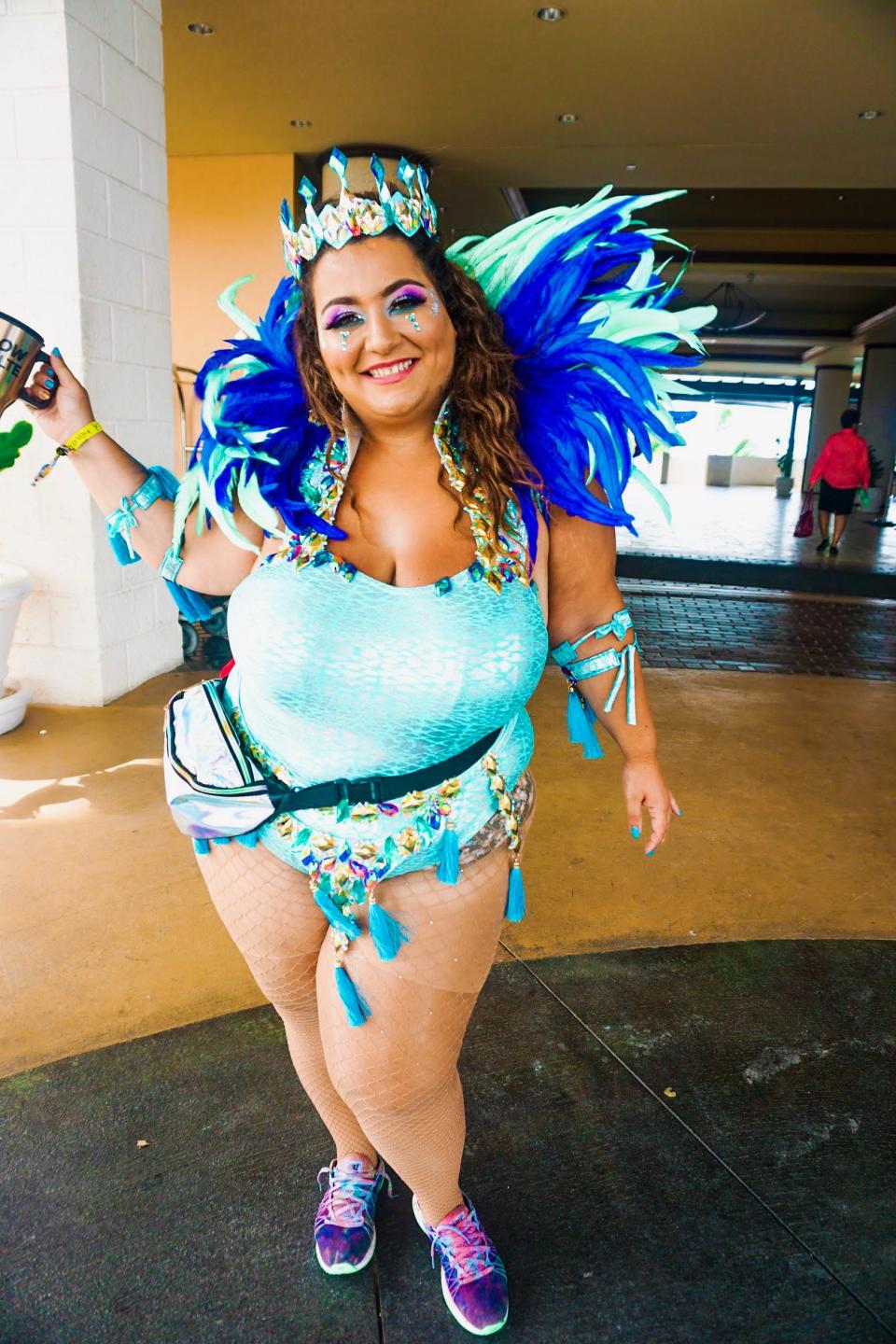
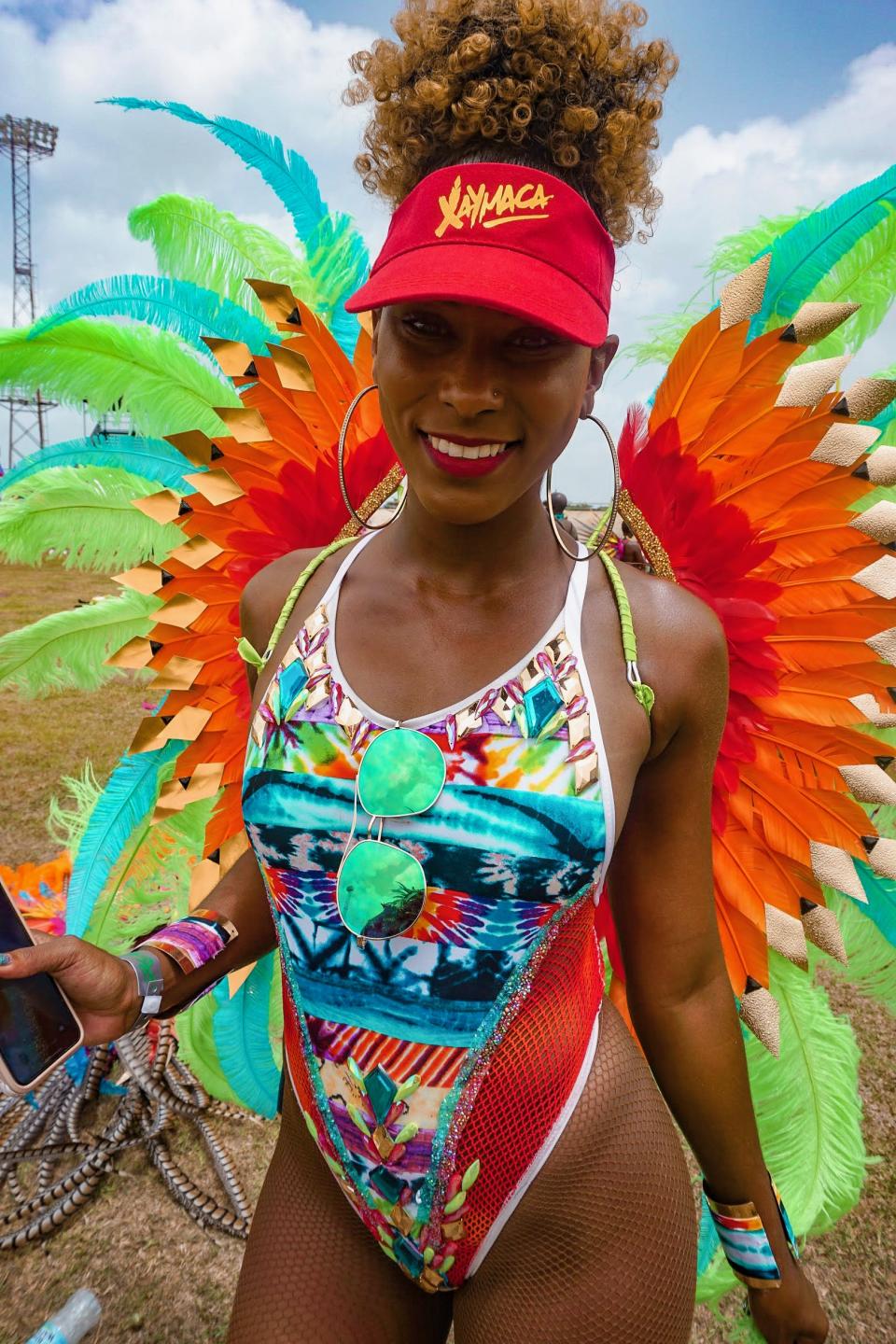
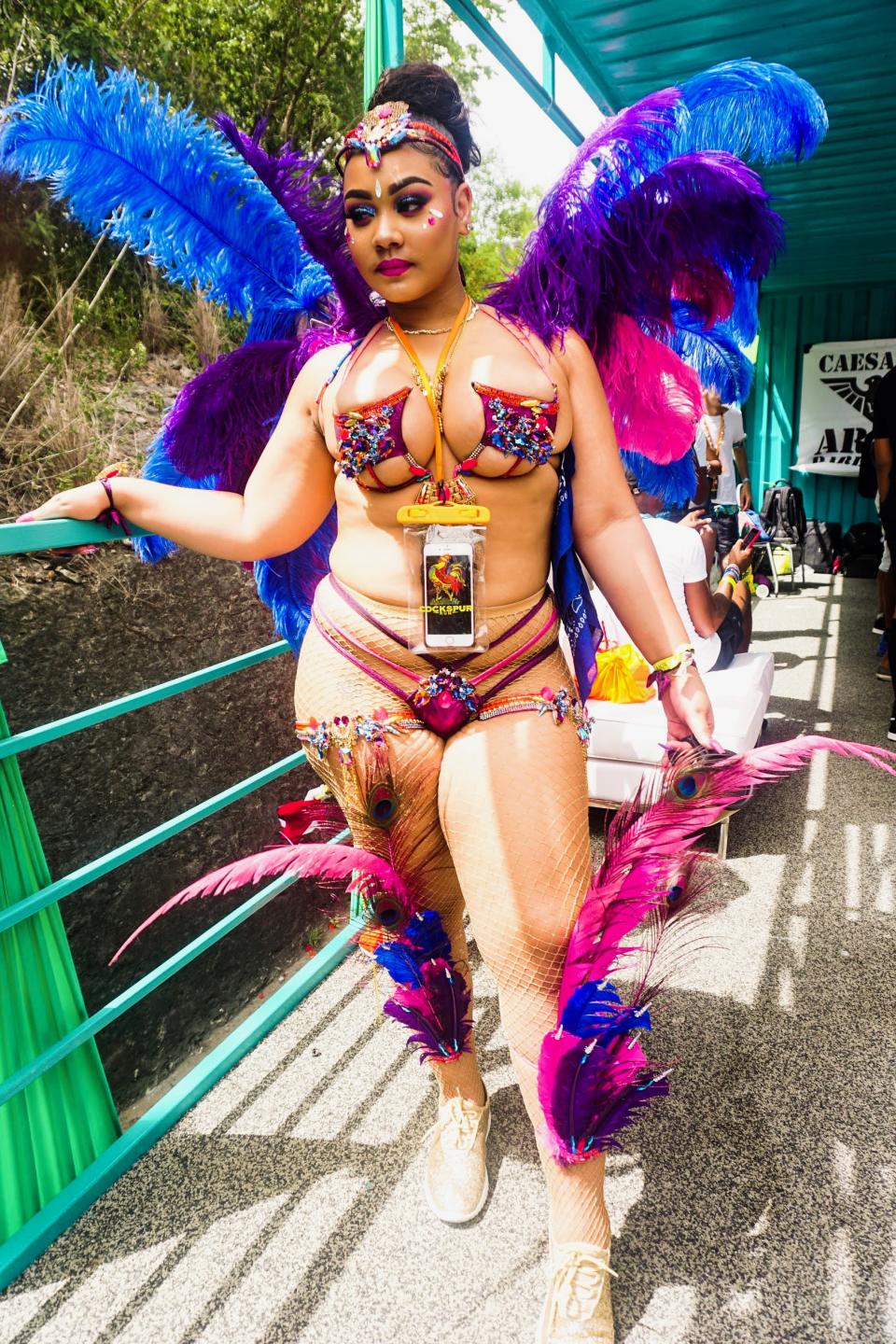
![<p><strong>Was there anything you were scared to show off?</strong> Sometimes I’m a little self-conscious about being so small, but carnival is about freedom and representation of all body types, so, no.<br><strong>What can you say about the hypersexualization of carnival?</strong> It’s really about who you are on the inside. Whatever you’re comfortable with. You don’t have the “wine” and Wuk-Up [dance] all the time. You can just go and walk and enjoy it.<br><strong>How have you overcome body-image and self-esteem issues? How does carnival play into that?</strong> It plays 100 percent into it because just being so dressed up and gorgeous, just beautiful, how could you not feel yourself at that point?<br>(Photo: Noel Walker for Yahoo Lifestyle) </p>](https://s.yimg.com/ny/api/res/1.2/UXBhWO7RYKXEIuPx0jNB0w--/YXBwaWQ9aGlnaGxhbmRlcjt3PTk2MDtoPTE0NDA-/https://media.zenfs.com/en/homerun/feed_manager_auto_publish_494/73e5422b7a71c43b99af73602109a5c3)
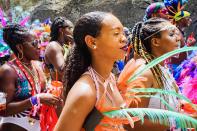





![<p><strong>Was there anything you were scared to show off?</strong> Sometimes I’m a little self-conscious about being so small, but carnival is about freedom and representation of all body types, so, no.<br><strong>What can you say about the hypersexualization of carnival?</strong> It’s really about who you are on the inside. Whatever you’re comfortable with. You don’t have the “wine” and Wuk-Up [dance] all the time. You can just go and walk and enjoy it.<br><strong>How have you overcome body-image and self-esteem issues? How does carnival play into that?</strong> It plays 100 percent into it because just being so dressed up and gorgeous, just beautiful, how could you not feel yourself at that point?<br>(Photo: Noel Walker for Yahoo Lifestyle) </p>](https://s.yimg.com/ny/api/res/1.2/12r7R5FdsMD4U6bfhzcNpA--/YXBwaWQ9aGlnaGxhbmRlcjt3PTIxMDtoPTEzMQ--/https://media.zenfs.com/en/homerun/feed_manager_auto_publish_494/73e5422b7a71c43b99af73602109a5c3)
